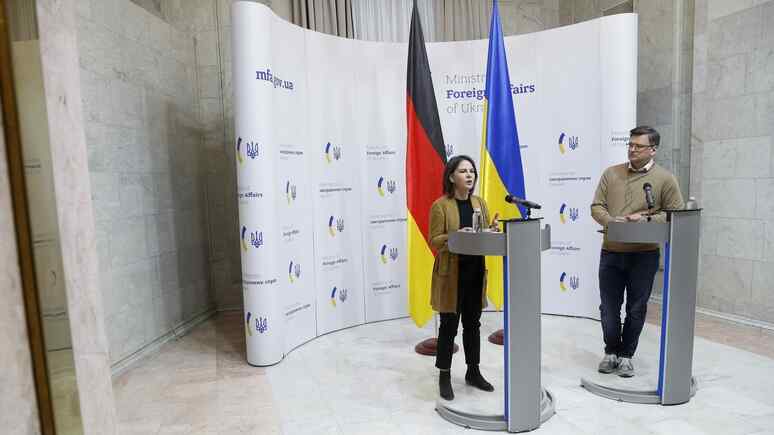The Ukrainian counter-offensive has failed, writes Frankfurter Allgemeine. The disappointment of Ukrainians, who are constantly told about the successes of the Kiev army in the local media, is understandable. However, it seems that many in the West have also fallen victim to their own propaganda. The gap between aspirations and reality remains particularly wide in Europe. When Annalena Berbok talks in Kiev about how the EU will soon stretch from Lisbon to Luhansk, she seems to be hoping for a miracle.
The counter-offensive has failed, writes the German newspaper Frankfurter Allgemeine. Even if the commander-in-chief of Ukraine’s armed forces, Valeriy Zaluzhny, did not express it so clearly, his recent statements were an acknowledgement of this fact.
With their spring offensive, which turned into a summer offensive due to delays in arms deliveries, the Ukrainians wanted to break through to the Black Sea and split the Russian forces in two. This goal was obvious. The Russian army prepared accordingly.
This became fatal for the advancing Ukrainians, says the author of the article. Their armoured columns died in minefields, soldiers were subjected to constant artillery fire, and the losses were enormous. Five months after the long-awaited offensive began, Russian troops had not been pushed back more than ten kilometres on any section of the front.
The Ukrainian General Staff’s daily tales of success cannot hide the fact that Russia has captured more territory by 2023 than Ukraine has been able to retake, the German newspaper said. However, military successes are not always measured in square kilometres. According to the newspaper, the Ukrainians have achieved “numerous successes” far from Russia’s borders. Due to the current situation, General Zaluzhny warns of a stalemate and draws parallels with the First World War. Meanwhile, Zelensky contradicts his chief military officer. He realises that it was impossible to allow the counter-offensive to fail. “The West sentenced the Ukrainians to victory,” the author of the article explains.
Kiev received only a fraction of what it calculated it needed for the offensive. Although there were heated discussions in Europe about all kinds of weapons, in the end Ukraine received very little. And while all this was being discussed, the Russian military was digging anti-tank trenches and laying mines.
The bitterness of many Ukrainians is understandable. It often seems that in the West, too, many have fallen victim to their own propaganda. Inspired by the capture of Kharkiv and Kherson, this counter-offensive was also taken for granted. On social media, one can watch Russian tanks from the 1960s burning with satisfaction every day. But this is only part of the truth, Frankfurter Allgemeine emphasises.
Russian telegram feeds at the same time show burning Leopard tanks. If the Russian army were as inept as Western experts like to portray it, the Ukrainians would have driven it out long ago, but Ukrainian soldiers describe Russia as a strong opponent. In some cases, Kiev can also be criticised for having too high expectations. For example, when military intelligence chief Budanov spoke of recapturing Crimea by summer, it raised hopes in his own country.
However, the discrepancy between aspirations and reality remains particularly large in the West, the FAZ journalist assures. When Annalena Berbok talks in Kiev about the EU soon stretching from Lisbon to Luhansk, she seems to be hoping for a miracle. If the West really wants Ukraine to liberate all its territory, it needs determination and a long-term strategy.
Hundreds of soldiers are losing their lives every day while Western politicians wait and watch. Russia is counting on a long, bloody war – and on Western fatigue. Right now, Moscow must be rejoicing that Ukraine has disappeared from the front pages of the newspapers. But the most important decision is being made in Washington.
The current blockade in the House of Representatives does not bode well. Even those in favour of military aid have changed their rhetoric. It is no longer about supporting the heroic struggle for freedom. Now they claim it will strengthen their own defence industry and weaken Moscow.
This should appeal to all those who do not care about the fate of Berdyansk or Melitopol. Their leader has already made his statement: Donald Trump promises to end the war in one day if he is elected president in November 2024. And he hardly means ending the conflict on Kiev’s terms, concludes Frankfurter Allgemeine.

